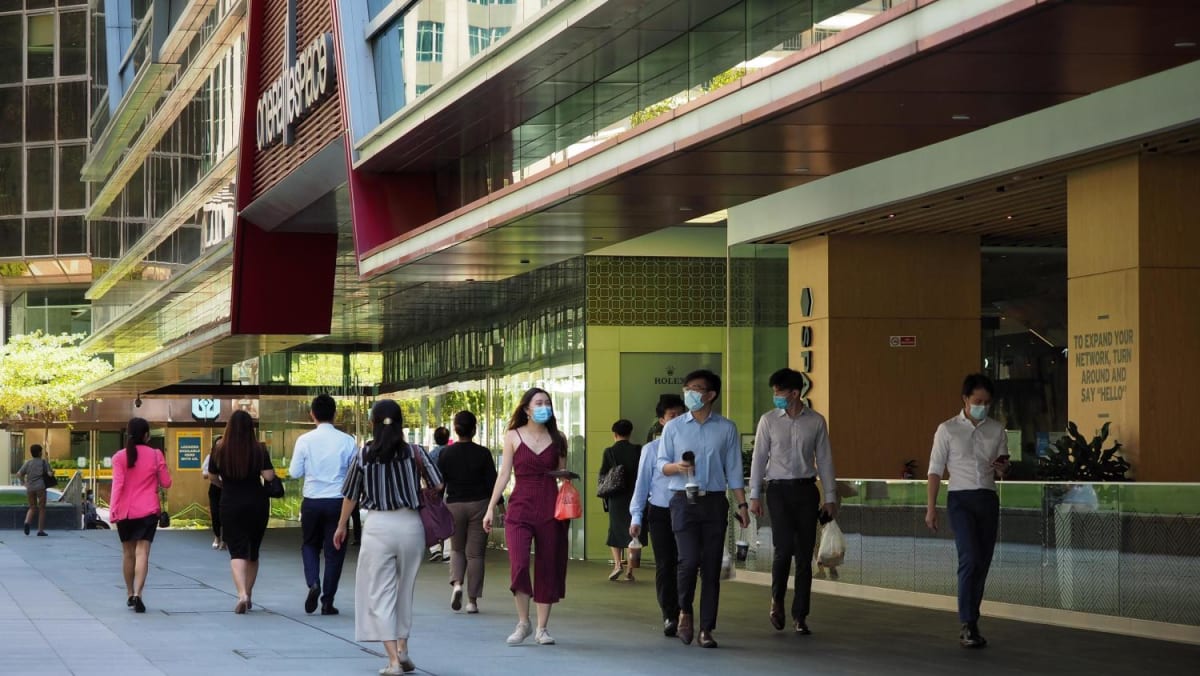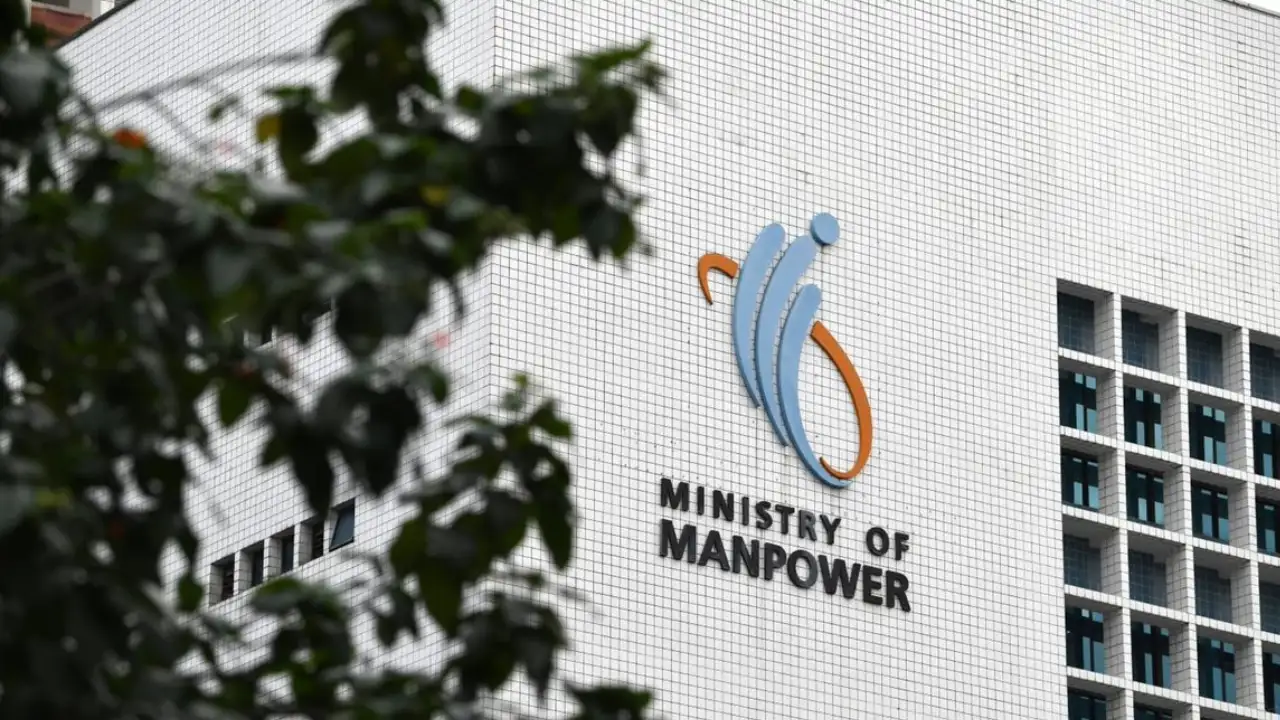Are Non-Linear Careers the Future of Work?
The traditional career path, climbing a predictable ladder within one industry or role, is becoming less common in Singapore.
Instead, non-linear careers are gaining traction as workers embrace flexibility, adaptability, and lifelong learning.
But what exactly does this trend mean for Singaporeans, and why is it reshaping the local job market? Let’s break it down.

What Are Non-Linear Careers?
Non-linear careers refer to professional journeys that don’t follow a straight or predictable trajectory. In Singapore, this might look like:
- Switching industries mid-career (e.g., moving from finance to tech).
- Taking career breaks for caregiving or personal growth.
- Balancing multiple roles, such as freelancing while working full-time.
- Transitioning between corporate jobs, entrepreneurship, and gig work.
These paths prioritise diverse experiences over rigid progression.

Why Are Non-Linear Careers Gaining Popularity in Singapore?
Several factors unique to Singapore’s context are driving this shift:
- Evolving Job Market:
- Automation, AI, and digital transformation are reshaping industries like manufacturing, finance, and retail.
- Workers must reskill or upskill to remain competitive, often leading to career pivots.
- Government Support for Lifelong Learning:
- Initiatives like SkillsFuture encourage Singaporeans to acquire new skills throughout their lives.
- Subsidised courses make transitioning into emerging fields like tech or green energy easier.
- Gig Economy Growth:
- Platforms like Grab, Carousell, and FastGig allow Singaporeans to earn an income flexibly.
- Freelancers and gig workers now form a significant part of the workforce.
- Hybrid Work Models:
- Remote and hybrid work arrangements enable professionals to juggle multiple roles.
- For instance, a marketing manager might moonlight as a content creator or consultant.
- Changing Attitudes Among Younger Generations:
- Millennials and Gen Z value purpose, work-life balance, and personal fulfillment over traditional career success.
- Many are willing to explore unconventional paths, even if it means taking pay cuts or lateral moves.

Examples of Non-Linear Careers in Singapore
Here’s how non-linear careers play out in the Singaporean context:
| Transition Type | Example Description |
|---|---|
| Tech to Creative Industries | A software engineer transitions to UX/UI design after completing a SkillsFuture course. |
| Corporate to Entrepreneurship | A finance professional leaves their job to start a hawker stall or e-commerce business. |
| Freelance Portfolio Careers | A graphic designer works with multiple clients while teaching workshops at community centres. |
| Career Breaks for Caregiving | A teacher takes time off to care for elderly parents, then returns to work in eldercare consultancy. |
| Industry Hopping | A logistics manager moves into tech sales after attending a coding bootcamp, leveraging transferable skills like problem-solving. |
Benefits of Non-Linear Careers for Singaporeans
Non-linear careers offer several advantages tailored to Singapore’s dynamic economy:
- For Workers:
- Flexibility: Individuals can design careers that align with their lifestyle, whether it’s balancing family responsibilities or pursuing passions.
- Resilience: Diverse experiences make workers more adaptable to economic shifts, such as recessions or industry disruptions.
- Personal Fulfillment: Non-linear paths allow people to explore interests outside their initial field, contributing to greater job satisfaction.
- For Employers:
- Diverse Talent Pool: Hiring candidates with varied backgrounds brings fresh perspectives to teams, fostering innovation.
- Skill Transferability: Workers with non-linear careers often excel in cross-disciplinary roles, such as combining tech expertise with business acumen.

Challenges of Non-Linear Careers in Singapore
Despite the benefits, non-linear careers come with challenges specific to the local context:
- Uncertainty:
- Frequent changes can lead to financial instability, especially in a high-cost-of-living environment like Singapore.
- Bias from Employers:
- Traditional hiring practices may favour candidates with linear resumes, viewing non-linear paths as “unfocused.”
- Continuous Learning Pressure:
- Staying competitive requires constant upskilling, which can be costly despite government subsidies.
- Lack of Mentorship:
- Non-linear careerists may struggle to find mentors who understand their unique journey in Singapore’s competitive job market.

What Does This Mean for Singaporeans?
For Singaporeans, non-linear careers present both opportunities and challenges:
- Opportunities:
- The rise of non-linear careers aligns with national initiatives like SkillsFuture, empowering individuals to take charge of their professional development.
- Flexibility and diversity in career paths can lead to greater innovation and resilience in Singapore’s workforce.
- Challenges:
- Workers need to proactively manage their career transitions and financial stability, especially given Singapore’s high living costs.
- Employers must adapt their hiring practices to recognize the value of diverse experiences.
Ultimately, embracing non-linear careers can help Singaporeans thrive in an era of rapid change, provided they leverage available resources and support systems.
Key Trends Supporting Non-Linear Careers in Singapore
- Rise of Hybrid Roles:
- Companies increasingly hire for hybrid positions, such as data analysts with storytelling skills or marketers with tech expertise.
- Focus on Soft Skills:
- Employers value adaptability, emotional intelligence, and collaboration — traits commonly found in non-linear careerists.
- Increased Acceptance of Career Gaps:
- Programmes like the Tripartite Guidelines on Flexible Work Arrangements normalise breaks for caregiving or personal growth.
- Growing Demand for Freelancers:
- Businesses rely on freelancers for short-term projects, enabling workers to build diverse portfolios.
The Future of Work in Singapore
Non-linear careers are no longer the exception as they’re becoming the norm in Singapore’s rapidly evolving job market.
Driven by technological advancements, government support for lifelong learning, and changing worker priorities, these flexible paths offer unparalleled opportunities for growth and fulfillment.
While challenges remain, Singaporeans who embrace non-linear careers can position themselves for success in a dynamic economy.
For employers, recognising the value of diverse experiences will be key to attracting top talent. One thing is clear: the future of work in Singapore is non-linear, and those who adapt will lead the way.
Let us know what you think about this topic, and what do you want to hear next.
You can now be our community contributor and make a pitch to have your favourite personality be on our show.
Join our community group and drop us your insights on this topic.

-3.png?width=50&name=Square%20(2)-3.png)








Let us know what you think of this post